U Kyaw Htun
Organic Cotton Farming & Hand Spinning
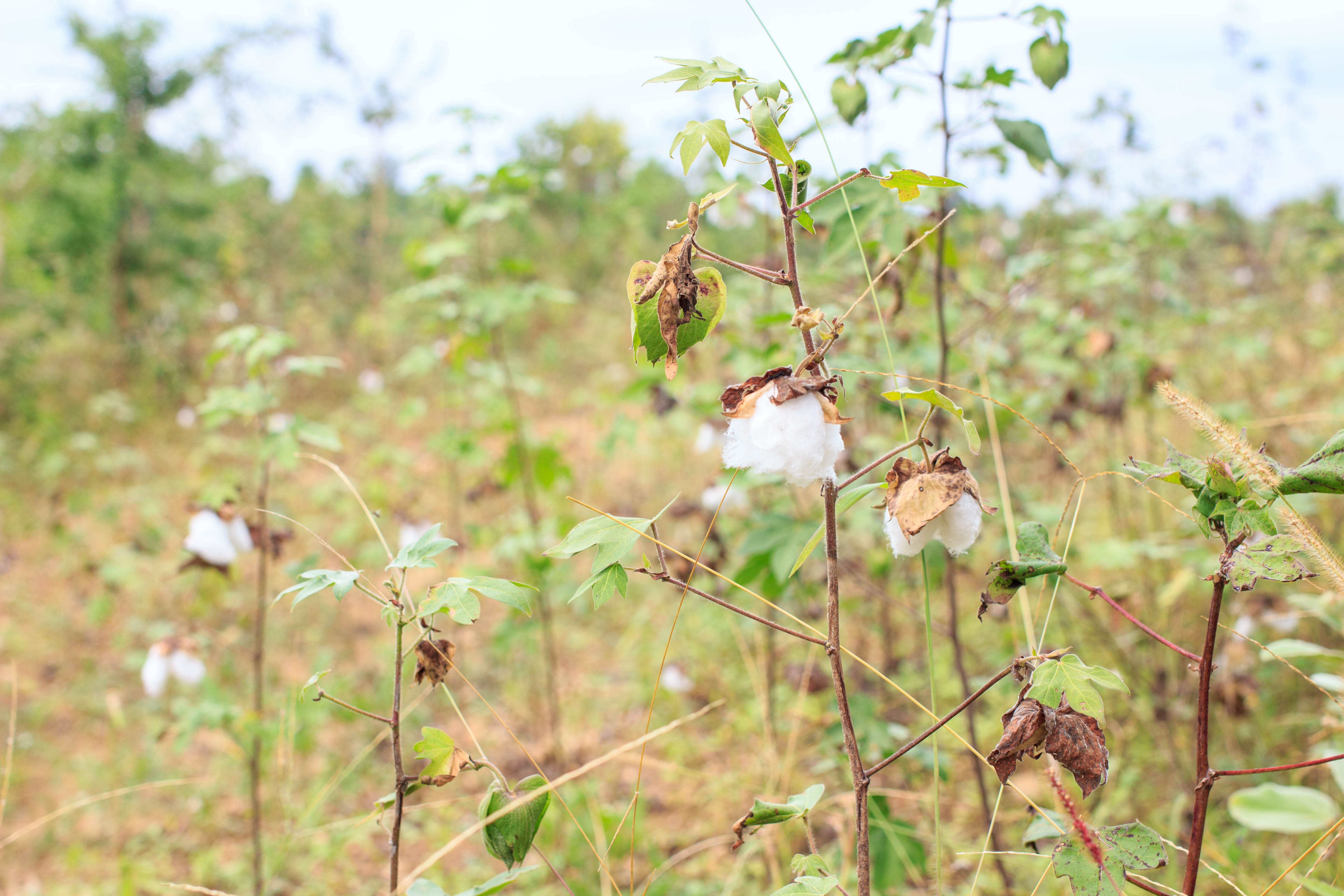

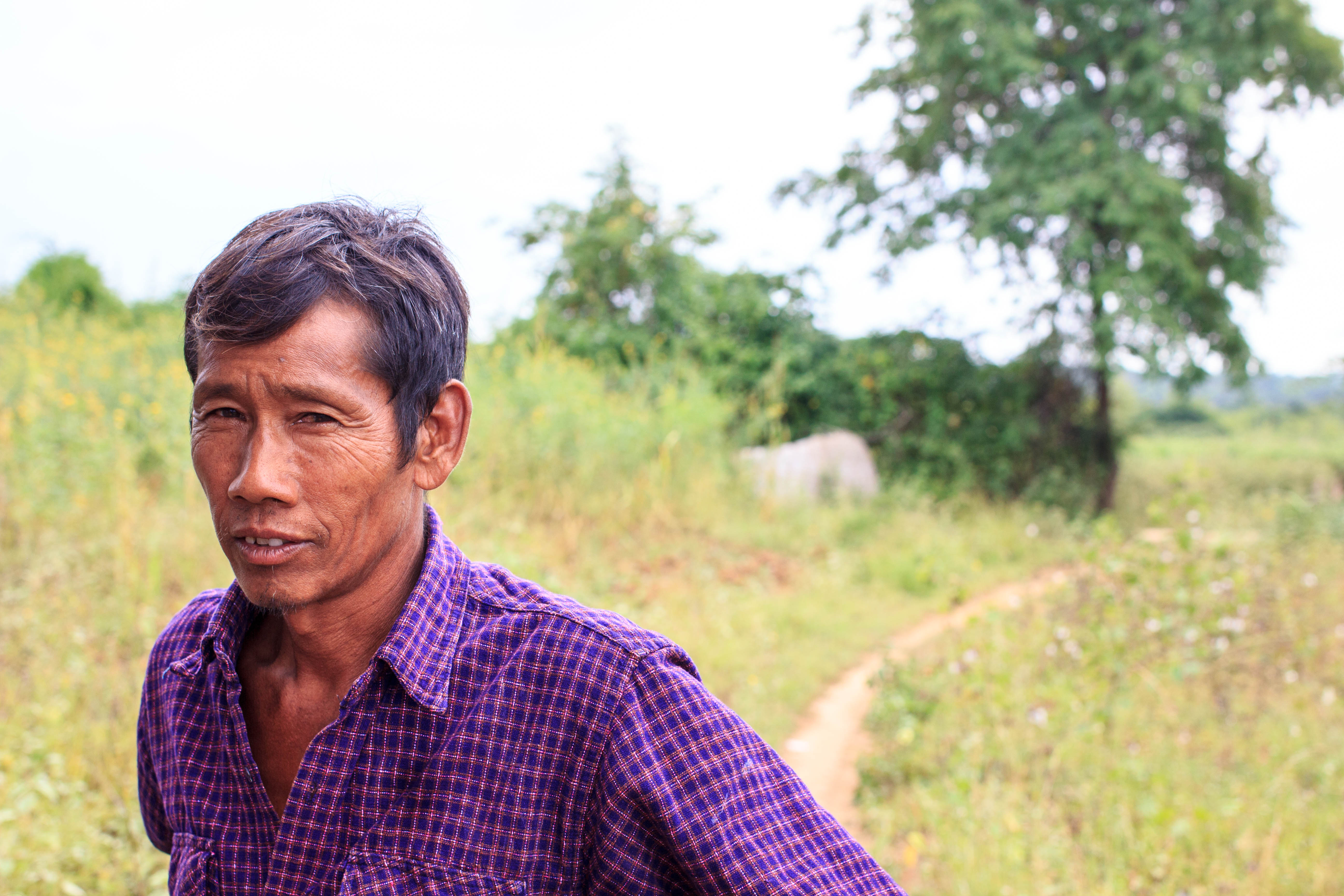
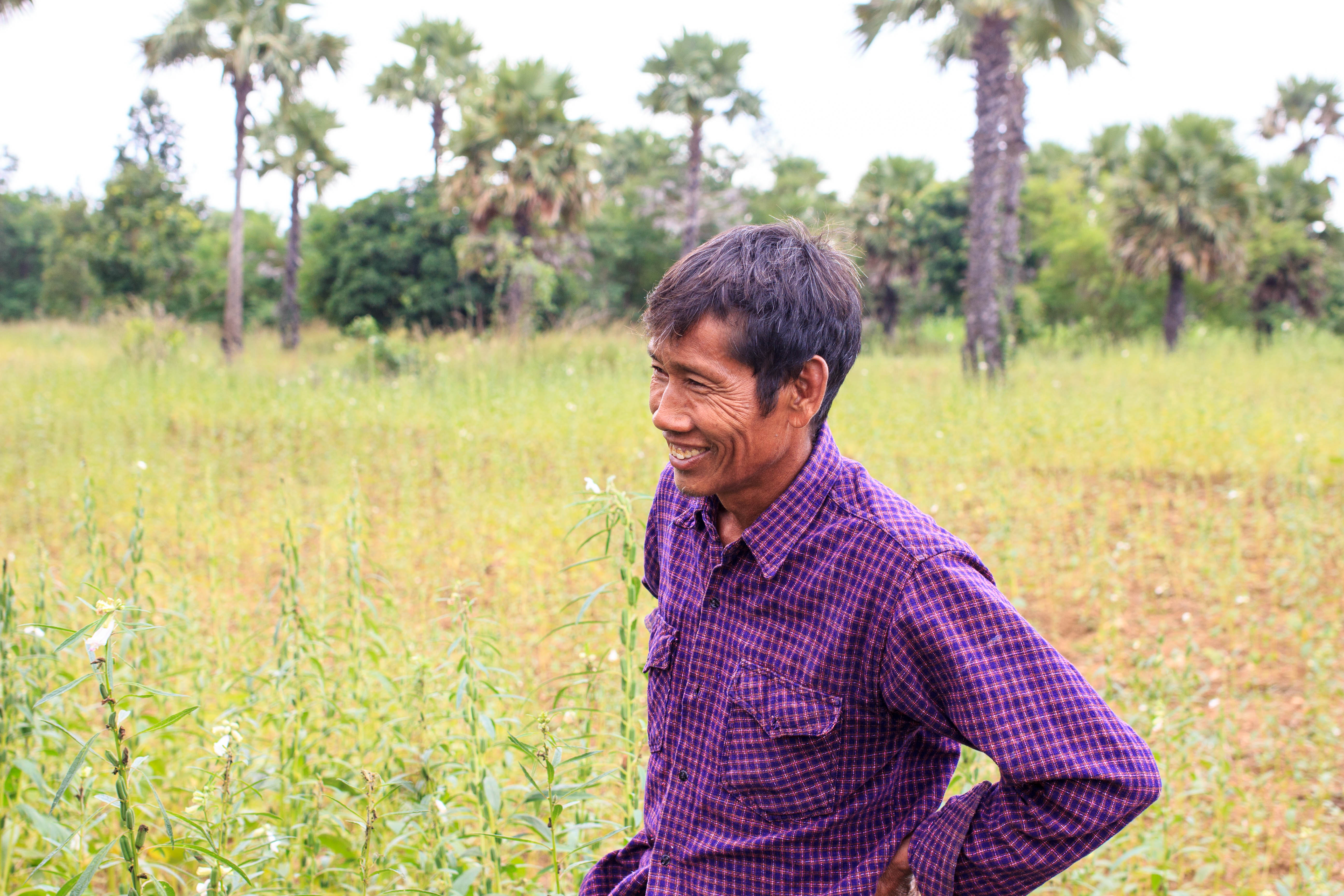
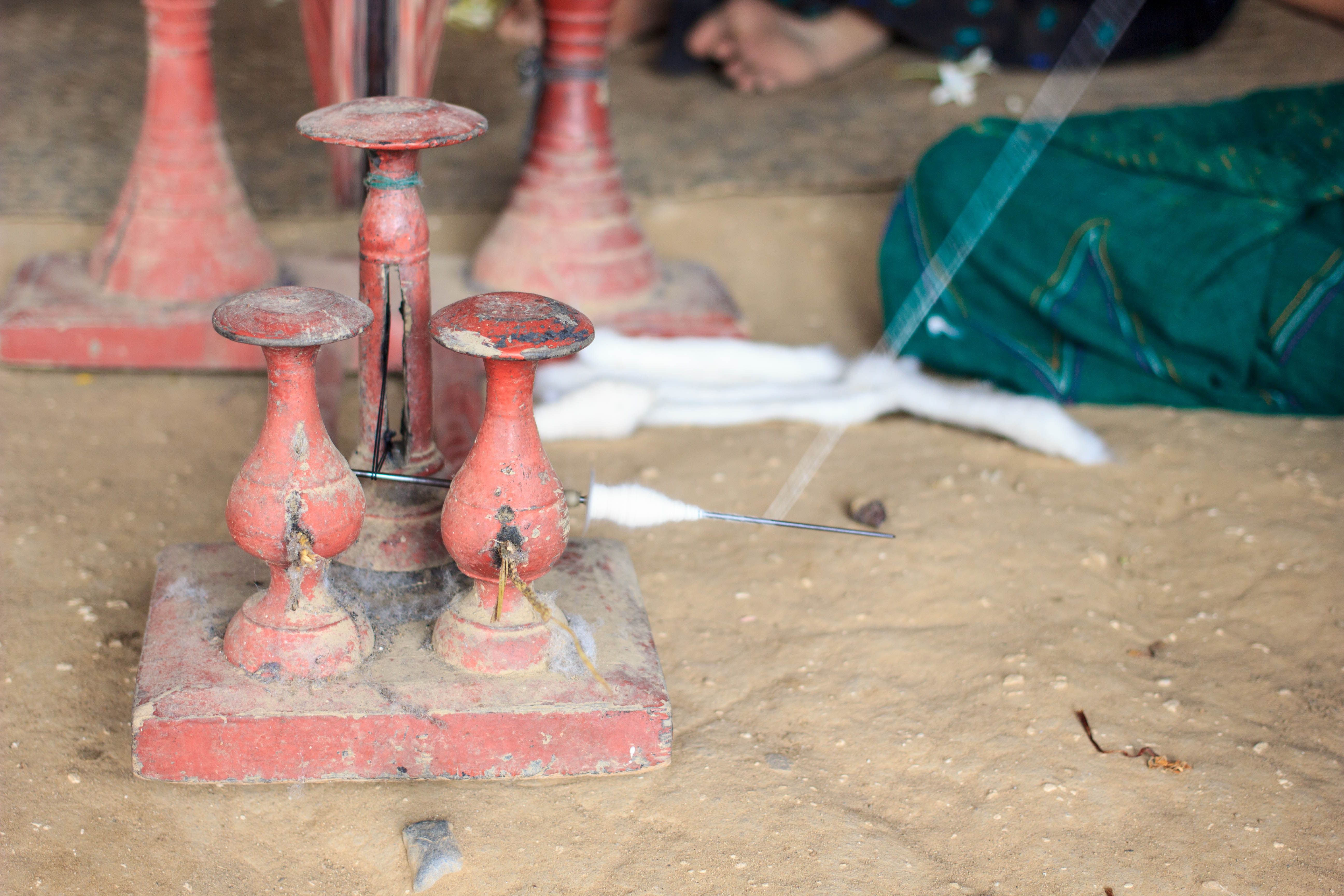
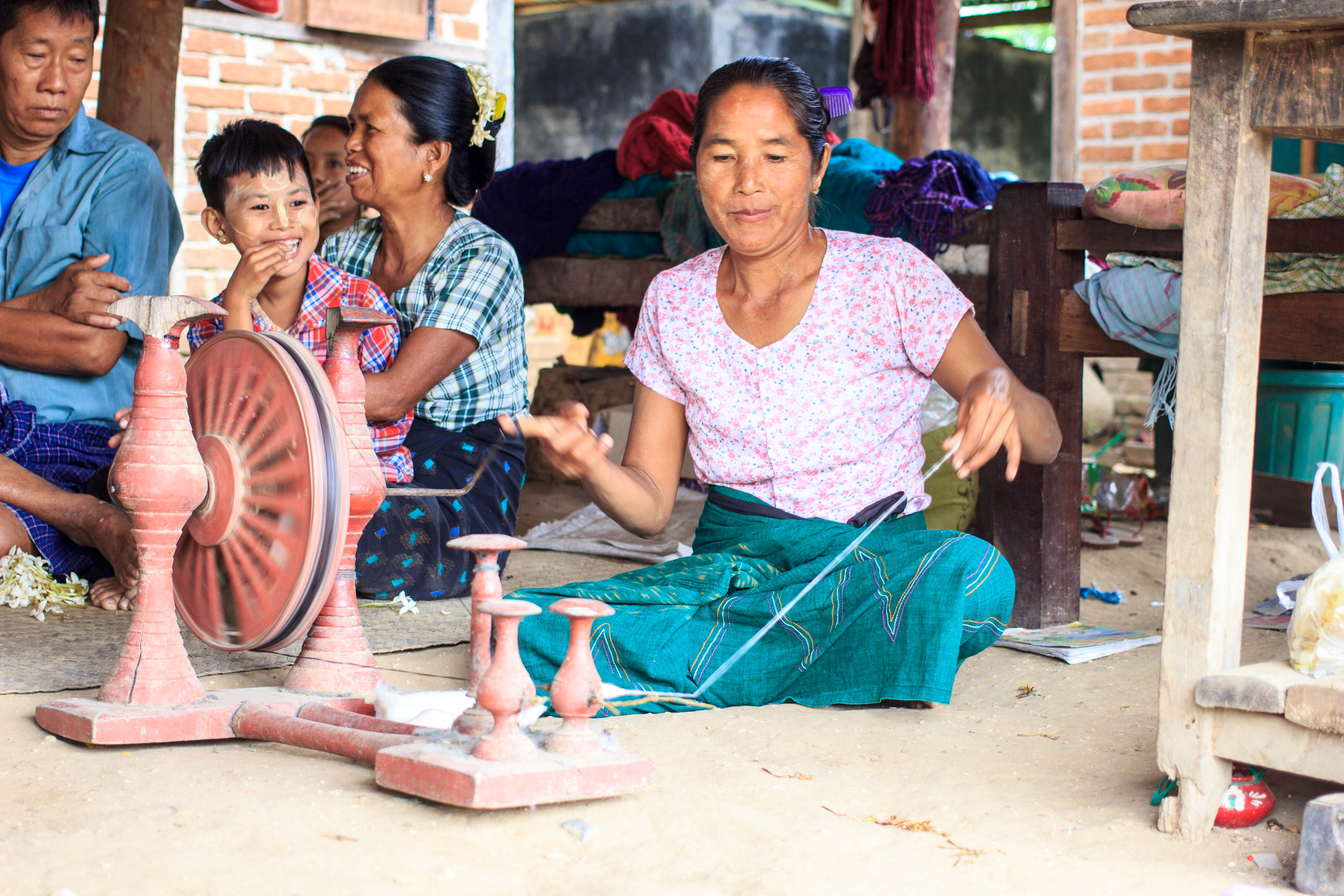
WHO&HOW
U Kyaw Htun
Name: U Kyaw Htun From: Koakkokyin (a village near Budalin) Job: Farmer organic crops U Kyaw Tun has been a farmer for over 30 years. He comes from a family of farmers. Some of his oldest children are also farmers. U Kyaw Tun and his extended family own a few plots of land, which stretch over 100 acres. The land is not far away from the village where he lives with his six children and wife. He comes from a big family, all of whom live in the village. On their land, they harvest cotton but also different types of beans, peanuts, sesame, corn and thanaka (thanaka powder comes for the bark of the tree and is used by people in Myanmar for skincare and beauty).
Cotton growing
The cotton grows on a small plot of the land and is processed in the village. U Kyaw Tun doesn’t use any chemicals or pesticides. His family relies on the seasonal harvest and is self-sustainable but doesn’t make a lot of profit. Because the profit from the cotton alone is not sufficient for U Kyaw Tun, he also grows the other crops. He has high hopes for trading more beans soon. He explains there is a huge demand for beans in Nepal, as the country can’t harvest these type of beans themselves. That could be an interesting potential market for the farmers of the village in addition to their other crops. U Kyaw Tun doesn’t farm all the different plots at the same time. Because he doesn’t use pesticides, many other plants and weeds grow on the land. As an example, he points out a plant used as a local medicine. They grind the roots and mix it with salt. The kids can lick this paste when they have a cough or cold.
The place
The village of Koakkokyin has 1650 inhabitants and is about an hour drive from the nearest town Budalin. This drive could be much shorter. However, the dirt road towards the village makes it difficult to access, especially during the monsoon months. The well-organised village has a head villager, Mister U Win Oo, who is appointed by the villagers. He does this job voluntarily in his spare time.
Impact
The committee of the village and the head villager discuss the development of the village and what causes need urgent investment. At this moment, the village needs funding to improve the road and to build a clinic, so people do not have to go to Budalin or even further out for healthcare. The improvement of the road would make the village more accesable. A steady road is very important as the farmers also sell their crops at the markets in surrounding towns like Budalin and the city of Monywa. During the Monsoon the village is hard to access and this, of course, is not beneficial for the necessary daily transport to town. The yields of the white cotton type depend on the amount of sun. The more sun, the more short-staple cotton can be harvested. The average annual yields of the humble 2 -acre cotton plot of U Kyaw Htun are 100 to 200 Peittha, which equals 163 to 326 kg. He gets the orders in from the middleman, who is the connection between the farmers and the (hand)weavers. You can’t buy raw cotton directly from farms; the trade always goes through a ginner (middleman). The cotton needs to be processed before it reaches the market and is traded by a fixed market price. Most of the villagers are farmers and live from the yields of the fields. When you visit the village after the harvest of the short-staple cotton, you can see big bags in front of the houses and people being busy with processing the cotton. The ginning process involves separating the seeds from raw cotton. Some seeds are processed into oil and sold in Monywa. Other seeds are planted on the cotton plot for new plants. Sometimes the farmers cut the cotton plant when it is still very young and not yet fully grown. They cook it with other vegetables. They explain the flavour is really good, but you should only eat small quantities. Women in the village are responsible for the spinning process. The explanation given why mainly women do this task: men do not have the patience to do it, it is a task for women. Like it is a man's job to climb the palm trees for the palm juice.



Leave a Reply
You must be logged in to post a comment.